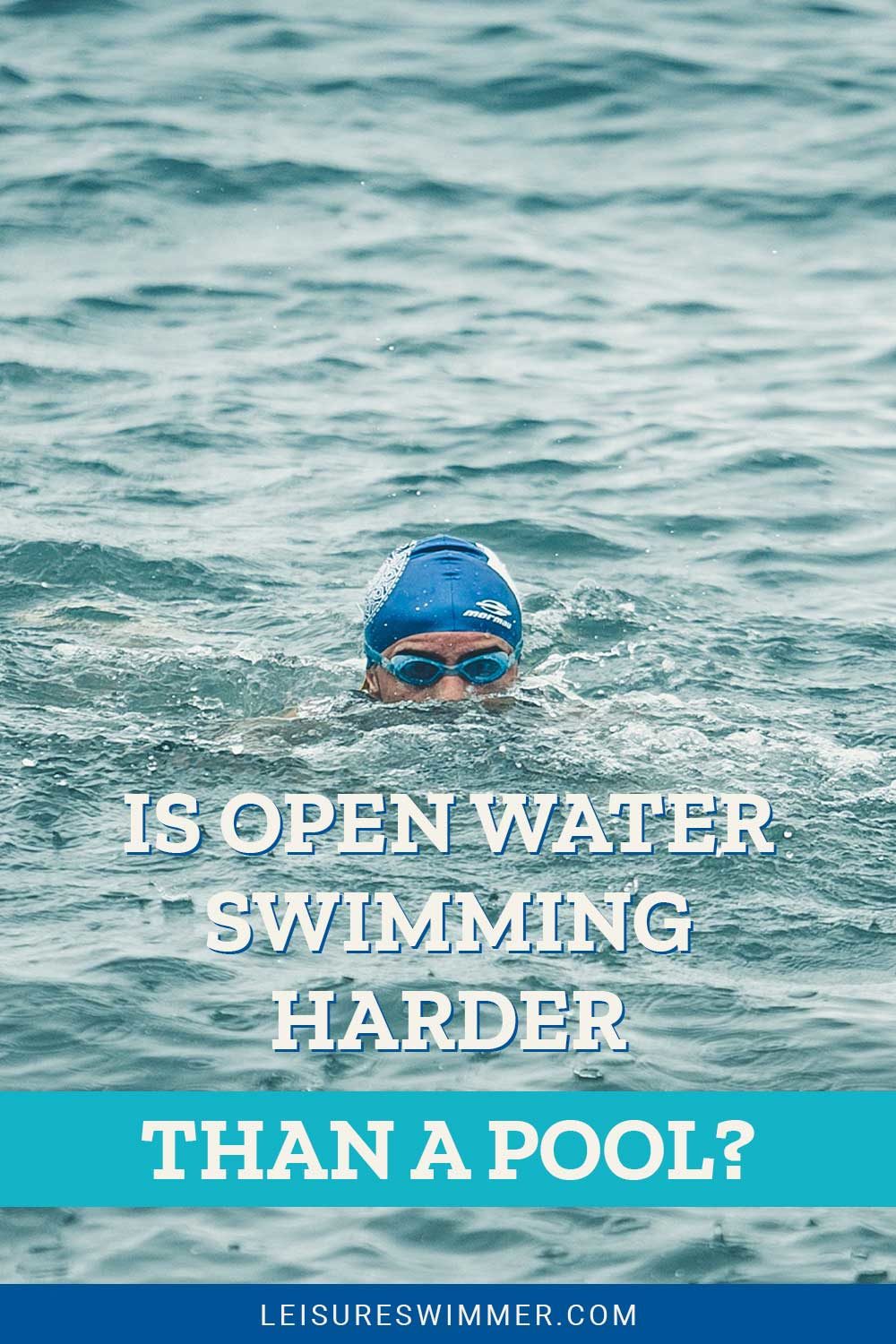Is Open Water Swimming Harder Than A Pool?
We may earn commissions for purchases made through links on our site. Learn more on our about us page.
There are many reasons why the difficulty level of swimming in open water is by far a more significant challenge than swimming in a pool.
The most obvious one would be uncontrolled water; At the same time, pools would have calm water and regulated environments, and open water plays by nature’s rules.
That being said, open water will have the added element of wildlife, plant life, and weather, which can become an obstacle to the open water swimmer. As a word of caution, be sure you are strong enough to withstand the extra difficulties of swimming in open water.

Is it Harder to Swim in the Ocean or in a Pool?
Swimming in the open ocean will be far more complex than swimming in a local pool. The sea, though a beautiful sight, does present the potential for dangerous situations.
Name a few reasons to be cautious of the presence of wildlife, both predatory and defensive aspects of animal life, and the tidal wave’s relentless power, including the life-threatening undertow.
The best practice would be to swim with a group, stay close to shore if you are not an Olympic-level swimmer, or when out on a charter, listen to the captain and experts to ensure a good time and avoid potentially dangerous situations.

What is the Difference Between Open Water and Pool Swimming?
When looking for the main differences between open water and pool swimming, we must focus on the water itself; it will be clean, calm, controlled environmentally, and wildlife free.
In addition, open water will have natural elements that could not live in the community pool environment.
Another race-focused difference would be the motion of the water. Yes, even in Olympic competitions, waves will reverberate about the pool adding to the difficulty of swimming.
Open water will have the tidal wave effect, calm lakes exempt, which will have a powerful impact on the swimmer.
Which One is Better for you?
Regarding which one is better for you, each side has a good enough argument to come out on top.
A pool will be environmentally safe, free of bacteria and viruses, and free from potentially dangerous wildlife, but also obstacles presented by weather, rocks, and driftwood, to name a few.
On the other hand, being forced to deal with the extra difficulty and elements presented in the open water will make the swimmer stronger for it.
The survival skills, unique strengths that come with enduring the challenges of the ocean or lakes, and even a more robust immune system come with open water swimming.
Each has an excellent reason for being the better choice; it all depends on what a person is looking for from the exercise of swimming.
Does Open-water Swimming Burn More Calories?
In short, with all the extra elements present in the open water scenario, there will be a noticeable burn in calories burnt to maintain the swimmer’s ability to move through the water.
There is also the temperature of the water, which in most cases will force a swimmer to heat their bodies while spending time in the water.
Many health experts will tell you that regulating body temperature in cold or wet environments will cost more calories than in a controlled environment, such as a community pool.
In addition to this information, the body’s immune defense systems will also spend caloric energy to combat the natural bacteria and viruses in the open water environment.
Which one is Better for Gaining Muscles?
This, again, is a matter of opinion; one contrast would be an Ironman challenger versus an Olympic athlete. The triathlete will need to develop muscles to withstand the rigors of the open water environment.
At the same time, the Olympian will want to stay healthy by staying in a clean environment and utilizing the calm waters for additional lengths. Then it would help if you thought about the limitations of the pool length and the unlimited distance of an ocean.
There are natural techniques that will train the body’s muscles from swimming in the battering waves and going out to distances otherwise impossible, which adds to muscle gain.
Final Thoughts on Is Open Water Swimming Harder Than a Pool
Swimming is a fantastic way to stay in shape, but it is also a beneficial survival skill. However, when swimming in open water, a person must be aware of the natural dangers within.
Sharks, jellyfish, and a strong undertow could all become dangerous elements in any open-water swimming situation. Therefore, the most competent course of action is to swim with a group and have a boat nearby for emergencies.
All dangers aside, swimming out in the open water with a snorkel can be an enriching experience. Going on a charter to a reef or other underwater environment will attest to the value of being comfortable swimming in open water.


